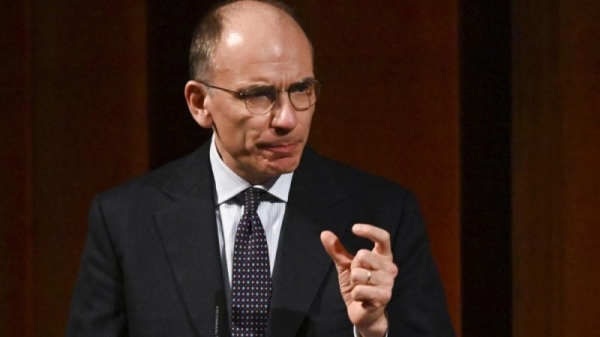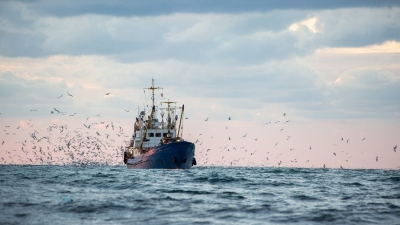New fund to balance future EU enlargement impact needed, Letta report says

With some EU member states and sectors likely to be exposed more than others by the European Union’s future enlargement rounds, a new fund is needed to compensate for imbalances, according to a draft of a report by former Italian prime minister Enrico Letta, seen by Euractiv.
“Setting a clear direction for the integration of new members into the EU represents one of the main challenges for the next years,” Letta states in the report, naming the area as one of the three key choices the EU has to make.
The bloc’s focus on pursuing enlargement should not lie “merely on the goal itself but on the careful execution of its implementation” and “more specifically on the methods and timing of such expansions”.
European Council President Charles Michel stated last year that the bloc should be ready to enlarge by 2030 if it wants to remain “credible, ” kicking off a debate about internal reforms that must be pursued before this could happen.
Over the past two years, some more enlargement-sceptic EU member states have voiced concerns about the cost of future enlargement and its potential burden on the bloc’s budget.
“Most importantly, this enlargement should be perceived, neither by governments nor by citizens, as a termination of growth and convergence support – particularly for the more recently joined countries – provided by cohesion policy and the Common Agricultural Policy (CAP),” Letta states in his report.
The report states that “Accompanying policies for the current member states and a reform of cohesion policy appear to be decisive,” adding that the latter presents “a key condition” for the success of the EU’s Single Market.
To address those concerns, Letta pitches a new fund, an Enlargement Solidarity Facility, “equipped with the financial resources to manage externalities and facilitate a smooth enlargement process, could be a vital tool to support the process”.
With some sectors and member states likely to be more exposed than others to future EU accession rounds, “an adequate funding instrument should be calibrated to support and compensate for these imbalances.”
Letta said the new fund would be based on a data-driven ex-ante assessment of the costs of enlargement and its impact on the EU’s Single Market.
Over the past year, the European Commission, as well as several EU member states, have pitched ‘gradual integration’ – a more flexible approach focusing on policy areas in which candidate countries could be integrated into the bloc rather than immediate full accession – as the right way forward on enlargement.
“The new strategy must prioritise areas where early preparation is achievable, allowing candidate countries to reap the benefits of specific elements of the Single Market well before full accession, exceeding what association agreements currently offer,” Letta states in his report.
According to Letta, however, this would need to be accompanied by “meaningful political elements.”
Letta states, “A nuanced approach must be found, facilitating the gradual but significant extension of Single Market benefits to candidate countries while simultaneously safeguarding the stability of both their economies and the Single Market.”
For that, the EU’s Single Market “must remain at least partially under the control of Brussels negotiators during the pre-enlargement process to prevent current Member States from losing their most powerful bargaining tool”.
A precondition for EU candidate countries willing to commit to their gradual integration into the bloc’s Single Market must be to fully adhere to the first Copenhagen criterion, the so-called fundamentals, which include a commitment to EU democratic values and standards as well as the rule of law.
In the report, he describes previous enlargement rounds as “successful choices for the EU”, that allowed the bloc to “offset the loss of relative weight caused by the transformation of the geopolitical and geo-economic framework after the Cold War, with the accession of new actors”.
“A larger EU, today as yesterday, is the best instrument to protect European interests and prosperity, uphold the principles of the rule of law, and defend EU citizens from external threats,” he states.
Read more with Euractiv



